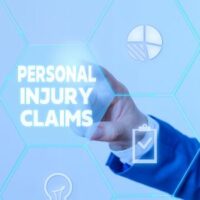How Accident-Related Injuries Can Impact Your Earning Ability On A Long-Term Basis

Lost wages, or the income that a person misses out on while recuperating after an accident-related injury, are an important thing to consider when attempting to calculate damages after an accident. Fortunately, it is possible to collect these losses throughout treatment and into the extended healing process. A concept that many people are less familiar with, however, is the impact that an accident can have on a person’s long-term earning ability. While reimbursement for these losses is also recoverable by accident victims, obtaining it can be complicated, so if you were seriously injured because of someone else’s negligence and are suffering from a disability as a result, it is important to speak with an experienced Fort Lauderdale personal injury lawyer about the types of compensation to which you could be entitled.
Lost Wages v Loss of Earning Capacity
Although they may sound the same, lost wages and lost earning capacity are actually two different types of damages. The former are calculated based on the amount of time that a person missed at work because of an accident, while the latter is a bit more complicated to calculate, as it accounts for how an injury will affect a person’s ability to make a living in the future. If, for instance, someone suffered a serious spinal cord injury in a car accident and was no longer able to work in the same job, but had to find lesser earning employment, or was even unable to work at all, then he or she could potentially be entitled to compensation for those future lost earnings.
Compensation for Loss of Earning Capacity
Damages for lost earning capacity are usually only available in cases that involve seriously disabling injuries. Unfortunately, how an injury will impact a person’s future employment can be complicated, especially in the months immediately after an accident. For this reason, it is important for accident victims to work closely with a team of healthcare professionals who can provide treatment, but also explain the long-term effects of their injuries. This evidence will play a crucial role in helping establish to a judge or a jury the severity of an injury and its repercussions. Besides medical records, a plaintiff will also need to provide other evidence of disability, including:
- Information about his or her specific job duties;
- Documentation about his or her income, both before and after the accident; and
- Testimony from a physician or vocational expert.
Of this proof, expert testimony often proves to be the most crucial in establishing damages for lost earning capacity, as these experts are uniquely equipped to explain how an injury can affect someone’s ability to perform his or her specific job duties.
Legal Advice When in Need
Getting back to work after an accident can feel overwhelming, especially for those who are physically unable to go back to their old jobs. If you find yourself suffering from serious injuries with lifelong repercussions, reach out to our experienced Florida personal injury lawyers at Boone & Davis by calling 954-566-9919 today.
Resource:
law.cornell.edu/wex/damages
